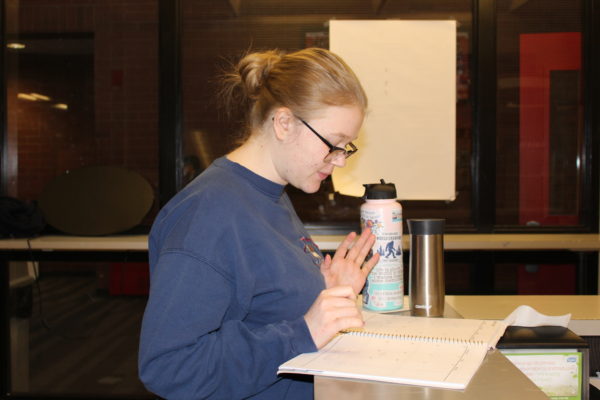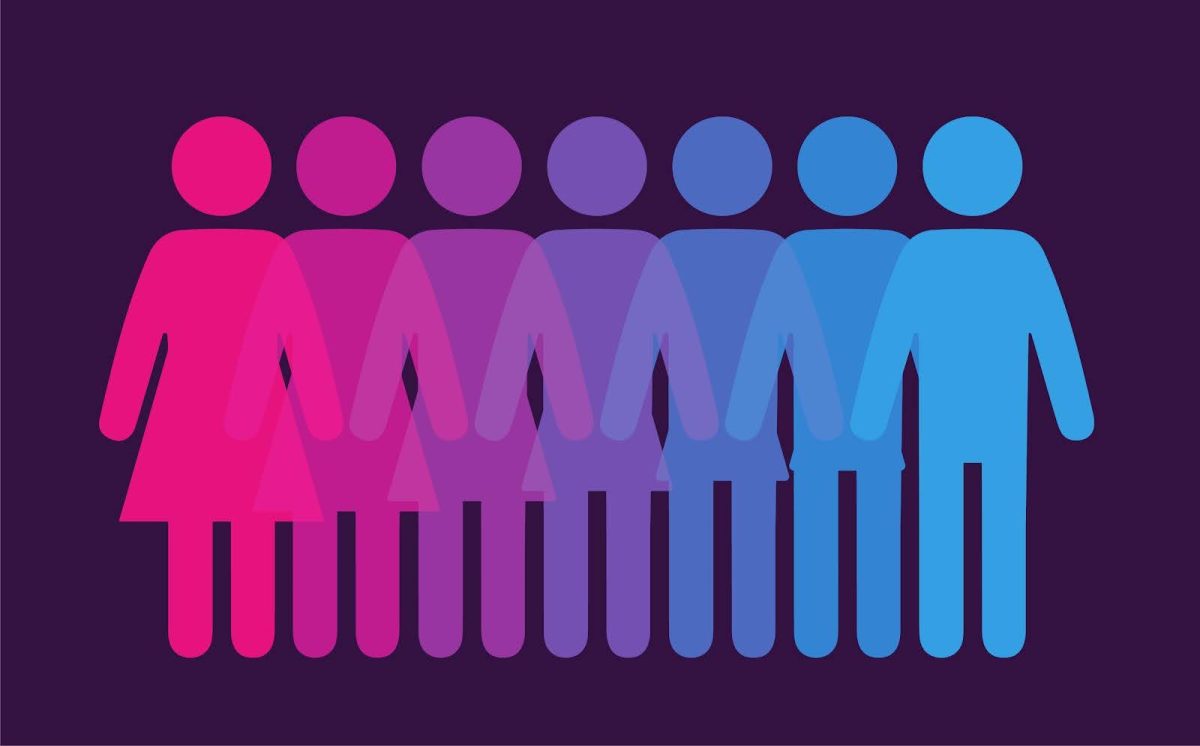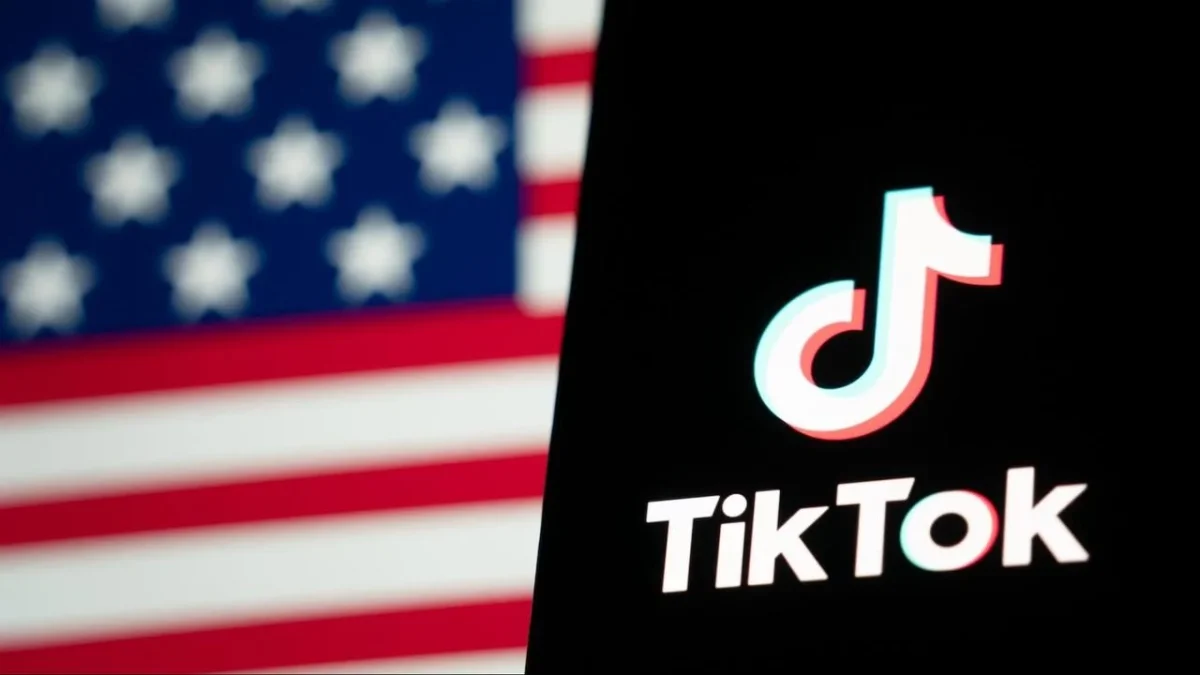Feature Photo By: Karisa Shumock-Kelly – Junior Jacey Lowrey studies for the SAT in the school store. Many stress about this test because it is a high stakes exam which can determine your future; however, it is now seen that the SAT may not be an accurate measure of intelligence.
Our whole lives we are being taught to a test. As a high school student, we are trained to take a version of the SAT at least twice a year up until our junior year– whether it’s a practice test or the real thing.
This test is said to determine our readiness for college, causing students to care about a number rather than the knowledge and potential they carry. Having a test-optional process is one step towards having a greater view on a student’s academic ability, and is a way to create a more diverse school.
It is true that your test scores are only one of many factors in college admissions. Certainly, there are plenty of other things that are taken into consideration, but as students, we have the understanding that these scores play a big role.
More and more colleges are dropping the requirement for SAT and ACT scores yearly; the University of Denver recently announced that students applying to attend in fall of 2020 would no longer be required to submit their test scores and would be evaluated on their high school transcript, essays, letters of recommendation, and extracurricular activities instead. They also explained that if you choose to not submit your test scores, you’re not at a disadvantage in comparison to someone who did.
By doing this, colleges hope to create more diverse schools. According to Inside Higher Ed, a major study found that years following a test-optional process, the number of applicants increased — private institutions by 29% and public institutions by 11%.
“I believe [the SAT] measures a particular type of intelligence that is not necessarily connected to college readiness and can be deceiving due to unequal access to test prep resources,” says Rangeview counselor Kyle Hirsch.

yearly income. (Washington Post)
The SAT costs about $50 to $65 to take and has more expenses when trying to study for it. SAT tutors, on average, cost $70 per hour.
“I think that SAT prep is overpriced and it comes to show how much being wealthy puts you at an advantage when it comes to the college admissions race,” said senior Yucheng Zhang.
It is commonly argued
that these tests are designed for more privileged groups.
When people from lower class families are required to take a test in order to seek higher education, it becomes difficult with the amount of money needed to be put into being successful on the test. By colleges creating a test-optional process, people from many different backgrounds will have an equal chance of getting accepted into the school.
In addition to creating a more diverse school, not requiring our SAT scores will give a better representation of our “intelligence”. There are many different reasons as to why a student could have scored poorly: sleep deprivation, lack of motivation, test anxiety, etc., all play a part in a bad score. So, because I didn’t get the best sleep the previous night I’m not college ready, right?

A picture of the PSAT 10 practice book. This book gives examples of the PSAT and shows what the test looks like. (Karisa Shumock-Kelly)
Wrong.
A lot of schools use this test to determine how well you will do at their school, but the SAT doesn’t show your ability to listen and learn in class. You can be a 4.0 student and still score low. In an article posted by PBS, they mention GPA being the most meaningful predictor of your college readiness.
According to the data from the study mentioned in the article, students who had good high school grades and adequate test scores did better in college than students with lower grades and higher test scores.
“[There’s] so much expensive preparation to being successful, therefore, it’s a socioeconomic measure and not an accurate representation of college readiness and ‘intelligence’.” sophomore Anastasia Balabanova says.
If universities were to create a test-optional process, they would be giving themselves an opportunity to create a more diverse school and have a better look at if a student is really going to be successful in their school.
More colleges need to look into the transition of requiring SAT scores to allowing them to be optional. After all, it will benefit both the school and the student.






